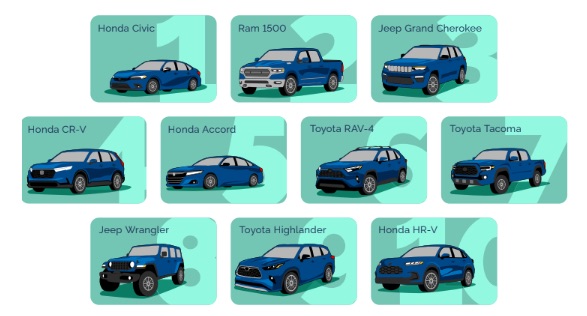Pickup Trucks Are Probably Going To Get Way More Expensive, Which Seems Bad To Me
Economic uncertainty often feels unavoidable, a sentiment I had while reading the Book of Job recently. It’s a challenging read in the Old Testament, but the core idea resonates: sometimes, we can’t explain why things happen.
In that spirit, let’s discuss the potential impact of new tariffs on the automotive industry, particularly regarding pickup trucks. The focus is on proposed tariffs on imported vehicles and how these measures might affect consumers and the industry.
The Tariff Landscape
The White House has announced adjustments to imports of automobiles and automobile parts into the United States. This essentially means tariffs on imported vehicles. The specifics include a 25% tariff on any vehicle sold in the United States that was built elsewhere, with possible exceptions for cars built in Canada and Mexico that comply with the USMCA. The rationale centers on national security concerns, which the administration states have escalated since 2019. The COVID-19 pandemic exposed vulnerabilities in global supply chains, and there have been challenges for American-owned automotive manufacturers.
There’s a bipartisan interest in expanding the manufacturing base in America, and hopefully, more jobs will result.
As the article notes, Ben Stein’s famous quote from Ferris Bueller’s Day Off reminds us of what happened after the Hawley-Smoot Tariff Act of 1930.
Who Wins and Loses?
“There are very few winners,” Sam Fiorani, vice president of global vehicle forecasting for AutoForecast Solutions, told Bloomberg. “Consumers will be losers because they will have reduced choice and higher prices.” Tesla, with its domestic manufacturing, may be the least impacted. Ford Motor Co. could also face less severe effects.
Consumers will be losers.

For automakers that import vehicles into the United States, the news is worse. Porsche imports all of its cars. Domestic brands like Buick also import the majority of their vehicles.
For pickup truck buyers, the situation becomes more complex. Ford builds its F-150s, Super Duty trucks, and Rangers in the United States, so these trucks may be somewhat insulated. General Motors faces a mixed bag, with some trucks assembled domestically and others in Canada and Mexico. Stellantis is in the worst shape because its heavy-duty trucks are made in Mexico. Toyota is in a favorable position because it builds all of its Tacomas and Tundras in the United States.

Toyota builds all of its Tacomas and Tundras here, so you’re in the clear.
In the short term, Ford Maverick, Chevy Silverado, and Ram 2500 are likely to increase in price, while the Toyota Tundra, Nissan Frontier, and Hyundai Santa Cruz might become relatively cheaper.
The UAW’s Perspective
The UAW is applauding the tariffs, seeing them as a step toward fixing trade deals that have hurt working-class communities. They are eager to work with any politician willing to reverse what they see as a decline in the working class’s fortunes.

If there’s one person who is happy with all of this, at least for now, it’s Shawn Fain.
Lease Buyouts
There’s also the issue of lease buyouts. As car prices potentially rise, those with leases might find it advantageous to buy out their vehicles. Lease End, a company that assists with lease buyouts, has reported a significant increase in such transactions.

Why is this happening?
“We believe this surge is driven by a combination of factors, including (but not limited to) market conditions, consumer preferences shifting toward lease buyouts, and greater awareness of the options available — including brand awareness.”
This trend may benefit consumers.
The Outlook
The situation is dynamic. The automotive industry is facing significant shifts, and the ultimate impact of these tariffs remains to be seen.



